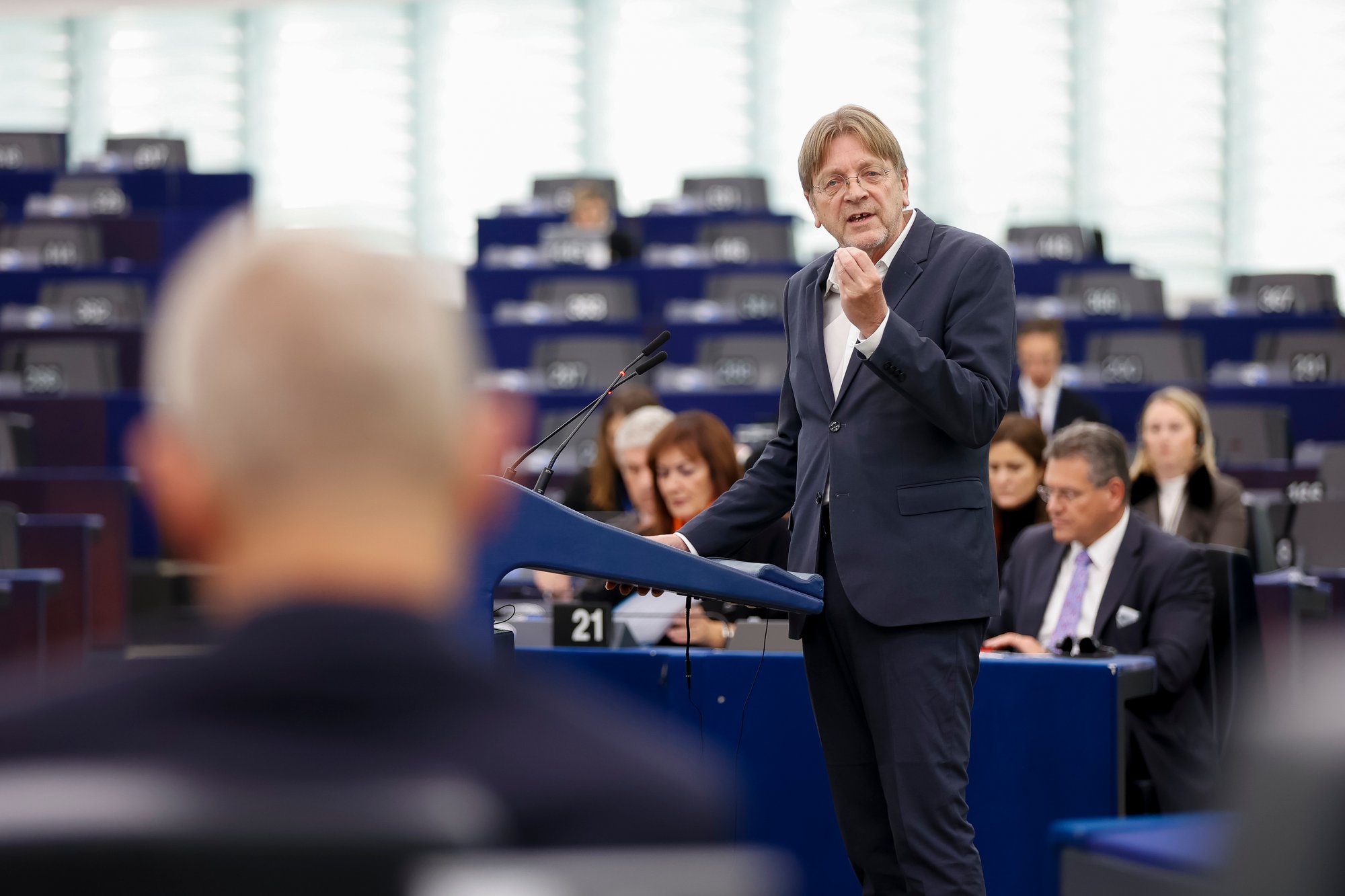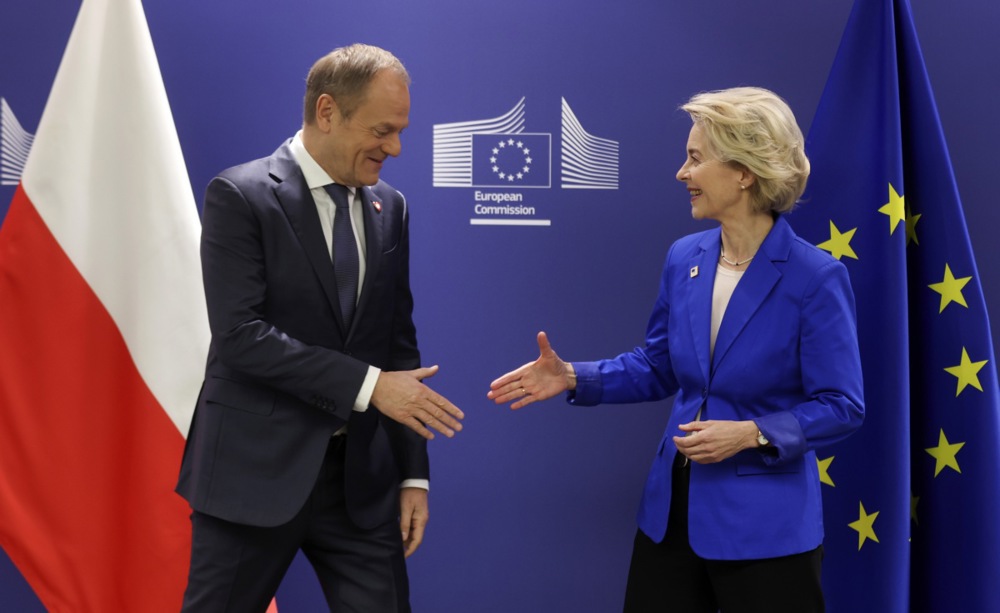Last Thursday, in a worrying development for freedom of speech in Europe, the European Parliament voted to add hate speech and hate crime to the list of ‘EU Crimes’.
EU Crimes, such as terrorism and human trafficking, are those considered “particularly serious” in the eyes of Brussels and that also have a “cross-border dimension”. For EU Crimes, Brussels can establish minimum criminal offences and sanctions which must apply across the bloc, suspending the usual EU principle of subsidiarity.
Given that EU-wide rules already criminalise hate speech committed on the basis of race, skin colour, religion, descent or national or ethnic origin, one could be forgiven for thinking an extension of the law would not be necessary.
But the EU is facing “new social dynamics”, says Renew rapporteur Maite Pagazaurtundúa, in which “hate” is allegedly being “normalised”, meaning a tougher legal framework is needed.
Accordingly, the new law will extend the definition of hate crimes across Europe to include “sex, sexual orientation, gender, gender identity, gender expression, sex characteristics, age [and] disability”.
While Pagazaurtundúa claims that the new provisions will still “[guarantee] citizens’ freedom of expression”, the inclusion of some of these categories will likely impinge on much legitimate speech.
A protection on gender identity, for instance, would likely criminalise many kinds of perfectly sensible gender-critical speech – speech that denies that how one identifies can alter one’s biological sex, the central tenet of transgender ideology. This would have gravely censorious implications. For instance, in Britain, where police forces have long been stewing in transgender ideology, campaigners have been arrested for saying on social media that “transwomen are men”.
On top of this, protections against hate speech on the grounds of such broad categories as sex, sexual orientation and even age and disability will surely have European citizens walking on eggshells for all kinds of everyday speech.
The law would also extend the scope of hate crimes to “any other fundamental characteristic” that might later occur to lawmakers. “Parliament calls on the Commission to consider an ‘open-ended’ approach”, explains a press briefing, “whereby the grounds for discrimination will not be limited to a closed list, to make sure the rules cover incidents motivated by new and changing social dynamics”.
What this means is that as the frontiers of the woke social revolution inevitably advance, ever-more-niche victim categories may duly be added to the list requiring protection, narrowing the scope of acceptable speech still further. (Under this law, one wonders, will it one day be illegal to call a “minor-attracted person” a nonce?).
On top of this, placing such arbitrary, ever-changing boundaries on what speech Eurocrats happen to deem legitimate will surely have a chilling effect on European citizens’ freedom of expression in general.
What’s more, while the spin for the new law hopes to suggest its intention is simply to protect victim groups, it is quite clear that there are politics involved.
Is it not strange that the matter of hurt feelings online should warrant the same seriousness for Eurocrats as terrorism, human trafficking and drug and arms trafficking, so as to be labelled an EU Crime?
But as the initial motion to the European Parliament explained back in November, Brussels’ problem with so-called hate speech is also political, since hate speech may apparently “weaken society as a whole and undermine the foundations of the Union”.
How is that? Because according to the motion, it is “extremist and populist movement” that are to blame for an alleged “rise in discrimination and hatred” in Europe today.
This, we learn, results in “dangerous divisions in society as a whole”, “deepens political Polarisation” and even “threatens democracy”. (Of course, when Eurocrats fret about division or polarisation, all they really mean is political opposition).
The bill therefore announces that it has political discourse explicitly in its sights, which is apparently justified by the fact that political discourse in Europe today is “increasingly characterised by hate speech”.
This rather extraordinary admission reveals the authoritarianism of this bill. In order to protect European democracy, it seems, the unwelcome voices of Europe’s growing populist movements are to be stifled by hate-speech laws. To the shameless Brussels blob, all democracy really means is their own fraying hegemony.
The obvious vehicle for this censorship is the EU’s newly minted Digital Services Act (DSA).
The online-regulation law already empowers legions of Brussels bureaucrats to scour the internet for examples of hate speech and disinformation (that is, wrongthink) and to compel social-media giants to remove them.
So far, Brussels’ efforts have focussed largely on disinformation and misinformation, with officials launching a punitive probe into Elon Musk’s X last year on the grounds that its lack of EU-approved fact-checkers make it a hotbed for fake news.
Stricter hate-speech laws would encourage Brussels bureaucrats also to police alleged hateful content online, on the basis that it is causing harm. Since hate and harm are even more nebulous concepts than so-called disinformation, they are even more open to being arbitrarily abused by would-be censors.
Given the worrying implications of this bill for political dissent and free speech in Europe, one can only hope that when it comes before the Council it is thrown out. However, what it also reveals is how Brussels today has come to view free speech as a threat to its power.
Last week, Commission president Ursula von der Leyen concurred with research by the World Economic Forum that the biggest global risk today is not war or climate change, but “disinformation and misinformation, followed closely by polarisation within our societies”.
It is not hard to see why she is so worried. Von der Leyen understands that opposition to the EU’s liberal-technocratic consensus is growing, and that she and her allies are on course for a bruising year at the ballot box. It seems that rather than try and appeal more to voters, Brussels elites would sooner clamp down on dissent.





Make no mistake: The EU’s war on X is a war on free speech